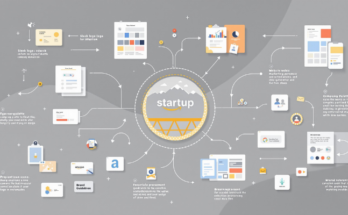If you’re looking for creative ways to fund your startup, there are several options available. These include crowdfunding, bootstrapping, and small business loans.
Another option is to use a peer lending platform that connects investors with borrowers. These can be more flexible than traditional loans and are often easier to qualify for.
Equity-Based Crowdfunding
Equity-based crowdfunding involves investors putting capital into companies in exchange for shares. This type of crowdfunding is typically used by early-stage firms that haven’t reached a minimum viable product (MVP). However, the strategy can also be employed by companies that want to generate buzz about their business, or those with a clear roadmap for growth.
With this type of financing, you’re obligated to pay back your debt with interest. Because of this, it’s important to have a well-thought-out plan for how you will utilize funds from these campaigns. Depending on the interest rate you secure and your repayment terms, this form of financing can sometimes be cheaper than alternative options.
Equity investment crowdfunding is a great way to cultivate a community that’s passionate about your company’s mission and goals. It’s essential to keep these stakeholders updated about the progress your company is making with the funds they provide. This can help transform their initial skepticism into investments, and in turn, strengthen your relationship with this key group of supporters.
Revenue-Based Financing
This innovative financing option for startups is gaining popularity and offers a valuable alternative to equity or debt funding. It also allows business owners to preserve ownership and control of their company, avoiding significant equity dilution.
In revenue-based financing, investors provide capital in exchange for a percentage of the startup’s future gross revenues. This means that payment terms can be flexible with your startup’s monthly sales, allowing repayment to increase as revenue increases and decrease as revenues decline.
While it isn’t a one-size-fits-all solution for every startup, it can be an ideal solution for high-growth startups that are not able to qualify for traditional loan options. It is less stringent than venture debt or angel investments and focuses on your revenue potential, rather than your cash flow or personal credit.
However, if you’re considering this type of financing, it is important to ensure that your company’s debt remains below 33% of its total revenue to avoid a potential financial crisis. It’s also important to keep the lines of communication open with your investors and update them regularly on your company’s performance, so that they can adjust their investment accordingly.
Crowdfunding Platforms
Crowdfunding platforms provide a way for entrepreneurs to raise capital from the public. These websites connect investors with businesses seeking funding through rewards, equity or debt-based models. The crowdfunding model has revolutionized investing by giving ordinary people the opportunity to participate in the growth of a promising startup while maintaining full ownership of their investment.
Popular crowdfunding sites include Kickstarter, Indiegogo and SeedInvest. These platforms allow entrepreneurs to share their product idea with a broader audience, potentially reaching thousands of potential customers. In return for their support, entrepreneurs offer perks, discounts and other incentives.
For example, Kickstarter allows users to fund creative projects like an innovative small appliance or independent film. It also has a platform specifically geared toward elevating technology projects, including the Oculus virtual reality headset. For startups that are unable to secure a traditional business loan, these options can be a lifesaver. However, these campaigns are typically time-limited and must reach their funding goal in order to succeed, which can be a risky strategy if the campaign is unsuccessful. There are also processing fees for crowdfunding campaigns that are successful.
Small Business Loans
Although not always available, there are loans specifically designed to support startups. These can range from equipment financing to invoice factoring and may be offered through community development finance programs, the SBA or even crowdfunding platforms. These loan types can be more easily obtained than conventional loans and often feature shorter application processes.
Some lenders offer startup business lines of credit, which provide borrowers with access to a predetermined amount of capital and only charge interest on what’s borrowed. This type of financing can be a good option for young businesses that are still building their credit histories and are looking for a lender that doesn’t put too much emphasis on credit score.
Equipment financing is a way for startups to purchase the necessary machinery and equipment needed to run their business, paying for the cost over several years. Some lenders have a minimum time in business requirement, while others, like Taycor Financial, prioritize a company’s ability to grow rather than its history or credit score. Equipment loans are often secured by the assets purchased and a personal guarantee is required from the borrower.
Investors
Choosing the right financing model is a crucial business decision. The type of model you choose will affect how quickly and effectively you grow your startup. To attract investors, you need to present a compelling narrative that showcases your startup’s potential for growth.
Investors can provide substantial capital for startups that have reached a critical stage in development. These startups can leverage this investment to enter new markets, grow their business, and prepare for an exit event.
While many founders turn to family and friends for funding, this can sometimes be a risky proposition. You need to be able to demonstrate your vision, market analysis, and financial projections to secure this type of funding. Furthermore, conflicts can arise when it comes to repayment terms. For these reasons, it’s often best to seek other funding options. These include accelerator programs, which offer a fixed program duration, or small business loans from banks and online lenders. These are more flexible in terms of eligibility requirements and offer lower interest rates than personal loans. They’re also typically offered on a short-term basis, which may allow for quicker funding.




